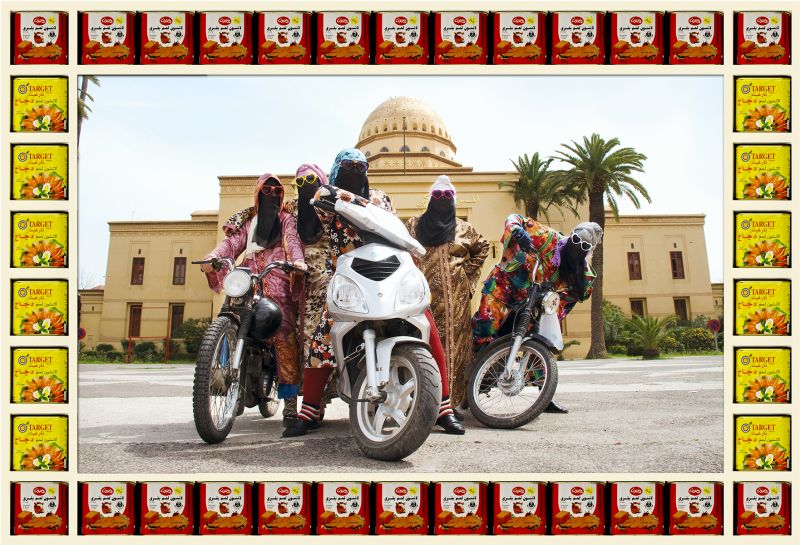Kesh Angels: A Glimpse into Marrakech’s Modernity and Tradition
The Kesh Angels exhibition by Hassan Hajjaj at the Taymour Grahne Gallery presents an innovative fusion of tradition and modernity. Challenging the stereotypical views associated with Muslim women, Hajjaj’s work offers a refreshing perspective. He states, “When Westerners see a women with the veil, a lot of them think, ‘Do they really ride a bike?'” This inquiry into the possibilities for women in traditional attire is both compelling and significant.

This vibrant motorcycle culture showcases various independent women, illustrating that societal perceptions are often misguided. Hajjaj emphasizes, “Journalists call me asking if this is a real gang,” reminding us that the women depicted in his art are not members of a misguided stereotype, but rather everyday individuals contributing to society as painters, writers, dancers, and mothers.

Hajjaj’s photographs are framed in a distinctive style, surrounded by inlaid wooden frames filled with culturally relevant items such as cans of Pepsi and matchboxes with Arabic script, imparting a sense of familiarity and kitsch. He proudly states, “I’m a ’60s kid, so I’m celebrating Pop art, but it’s Pop art from the Arab world.”

His experience as an immigrant shapes his artistic vision, allowing him to explore the contrasts between the familiar and the foreign. “Living between two places made me a bit of a misfit and gave me a different eye,” Hajjaj explains. The interplay of cultures enriches his work, showcasing unique perspectives that may often go unnoticed.





